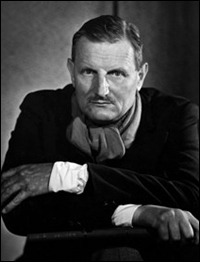
*
In the mid-20th century, if you were a member of Actors' Equity Association (the union that represents stage actors and stage managers) you had two sources of work: New York and the road. Professional regional theatre simply did not exist. The Little Theatre Movement of the 1910s-1930s had sown a provincial hunger for theatre, but those groups were amateur. It wasn't until the decades that followed that the regional theatre movement began to nurture local talent and disseminate theatre to every corner of the nation — including New York, whose commercial producers came to feed from its ever-flowing artistic trough.
Margo Jones was one of the first pioneers. In 1947 she established the first professional company outside New York: Theatre '47 in Dallas. Jones was intent on inspiring a nation of theatres where actors and playwrights could find work outside Broadway and the touring houses. Toward that end, she published a book in 1951 called "Theatre-in-the-Round," a sort of how-to manual that outlined methods for companies to get started, build subscription sales and develop boards. Theatre '47 provided playwrights like William Inge, Jerome Lawrence and Robert E. Lee their first big breaks, and Jones directed works by her friend Tennessee Williams, whom she had helped discover.
Many followed her example, including a young George Washington University graduate named Zelda Fichandler, who in 1950 founded Arena Stage in a former movie theatre in Washington, DC with her husband Thomas C. Fichandler and Edward Mangum. "There wasn't a theatre world," Fichandler recalled later. "There was nothing here. You don't know the wasteland it was."
 |
||
| Tyrone Guthrie |
Through the journey, Equity has collectively bargained with theatres, endeavoring to strike a balance between protecting actors and fostering creative growth. Fichandler remembers the union getting wind of what Arena was doing and sending down a representative. She recalls, "A man came down and said, 'You guys are doing good work. I think you really should belong to Equity, and we'll help you do that.' I must say, when I came to Washington, I did break rules. I think it was terribly important that Equity was watching everyone."
Equity is engaged in a yearlong centennial celebration of its birth and legacy. Every month, Playbill magazine is featuring a new story about AEA and its history in the theatre. This feature appears in the October 2012 issue of Playbill.
*
Read about a chapter of Actors' Equity's history in the Great Depression.
Read about how Equity played its part during wartime.
Longtime Lion King actress Jean Michelle Grier shares insight into an actor's career as part of Playbill's continuing look at Equity.










